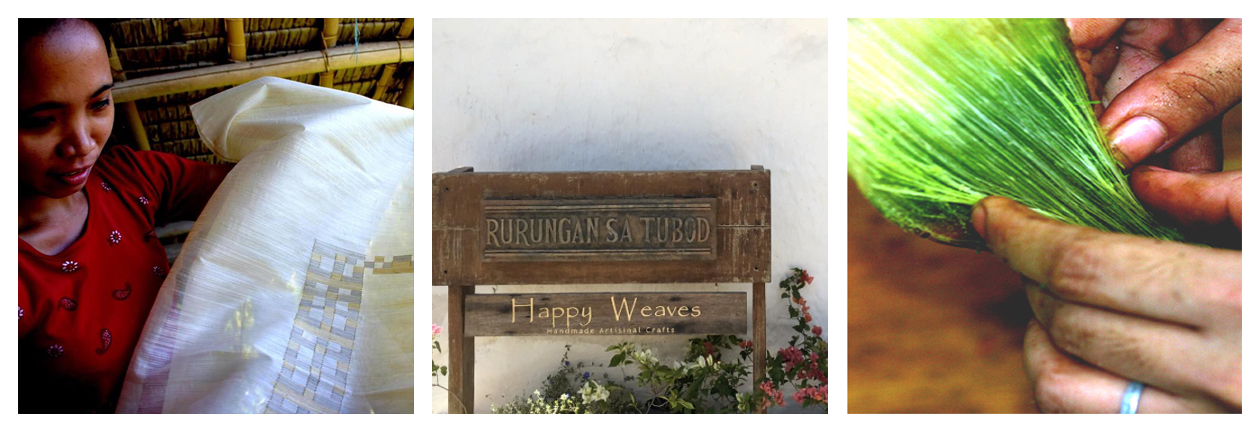Materials & Environment
In addition to acquiring knowledge about weaving, women at RSTF also incorporate sustainable practices into the weaving centers, which is intrinsic to the foundations philosophy.
From plant extraction to the final output of the textile, there is low waste as every part of the plant is used effectively. The tools used for extraction, fiber preparation, and weaving are locally found materials that can be used with minimal technology and energy. Furthermore, only natural means are used when washing and dyeing the fibers – the foundation does not apply chemicals or other detergents to the fibers as it discolors and weakens the fibers.
The cyclic program of the foundation continues as trainings are conducted on the replanting of these plants to ensure sustainability of raw materials.
Economic
It has become the main program of the Foundation to provide an alternative livelihood for these women by training traditional weaving techniques while assisting in the sustainability of a consistent income.
To know more of how the Foundation provides economic sustainability read about women empowerment in RSTF.
Not only does the Foundation provide an endurable means of providing income for the weavers, but also incorporates a cyclic methodology to maintain the Foundation. By creating more partners, it allows the foundation to open more centers and train more women, thereby giving more opportunities amongst communities.

